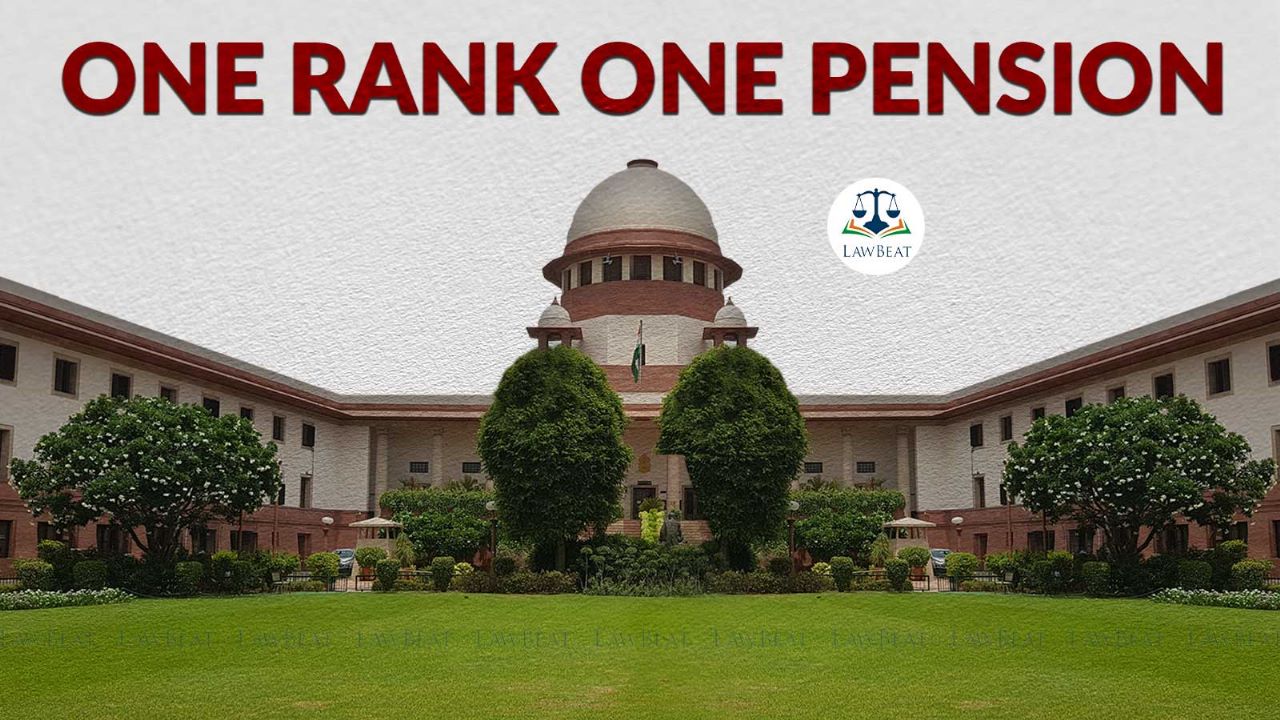OROP Scheme: Top Court pulls up Defence Ministry for defying its orders on payment of arrears

Last year, the Supreme Court had upheld the central government’s implementation of One Rank One Pension (OROP) Policy for the Armed Forces.
The Supreme Court today came down heavily on the Ministry of Defence for issuing a communication defying the Court's earlier order directing it to pay arrears under One Rank One Pension (OROP) Scheme by March 15, 2023.
Notably, the Ministry issued a communication on January 20, 2023, stating that they would pay the arrears by way of four equal installments to be paid quarterly.
CJI Chandrachud questioned the Ministry's authority to issue such a notification and said, "How can you issue such a communication against our orders?"
"You tell the secretary we are going to take action against him for that January 20th communication. Either withdraw it, or we are going to issue a contempt notice to the Ministry of Defense", the bench told ASG N Venkataraman.
Defending the Ministry's actions, ASG Venkataraman told court that the Ministry should be given time to carry out the exercise as per the court's order and a compliance affidavit may be filed in April.
On hearing this, CJI directed that a personal affidavit explaining the circumstances in which such unilateral decision was made by the department be filed by the concerned Secretary.
"At the least we will now direct payment of interest on the arrears as submitted by Mr. Ahmadi, on behalf of the petitioners. We are not directing them now, but we will. Place it immediately after the Holi holidays", ordered the bench.
On January 9, while referring to its order passed in March last year whereby the Supreme Court had directed the Central Government to pay arrears to Army personnel within 3 months as per the Defense Ministry's One Rank One Pension Scheme, a CJI Chandrachud led bench had directed that the said exercise must be completed by March 15.
By the same earlier order, the Supreme Court had also upheld the central government’s implementation of One Rank One Pension (OROP) Policy for the Armed Forces. The order was passed in the plea by an association "Indian Ex-Service Movement".
The plea had alleged that OROP led to the creation of a separate class among personnel equally situated in rank and length of service.
The government’s stand that equalisation of pension would happen periodically every five years was also challenged. It was contended that a gap of five years would leave them at a great disadvantage.
The Supreme Court had then held that there was no legal mandate that pensioners who hold the same rank must be given the same pension.
It had added that all pensioners who held the same rank may not form a homogeneous class. The court further remarked that a new pensionary benefit can be made applicable from a prospective date, with the only condition that it cannot split up a homogenous class.
Furthermore, the court had ordered for a refixation exercise to be conducted by the central government for a period of 5 years with regard to pension payable to Army Personnel as stated in the OROP policy in accordance with the November 7, 2015 notification.
Case Title: Indian Ex Servicemen Movement vs. Union Of India
